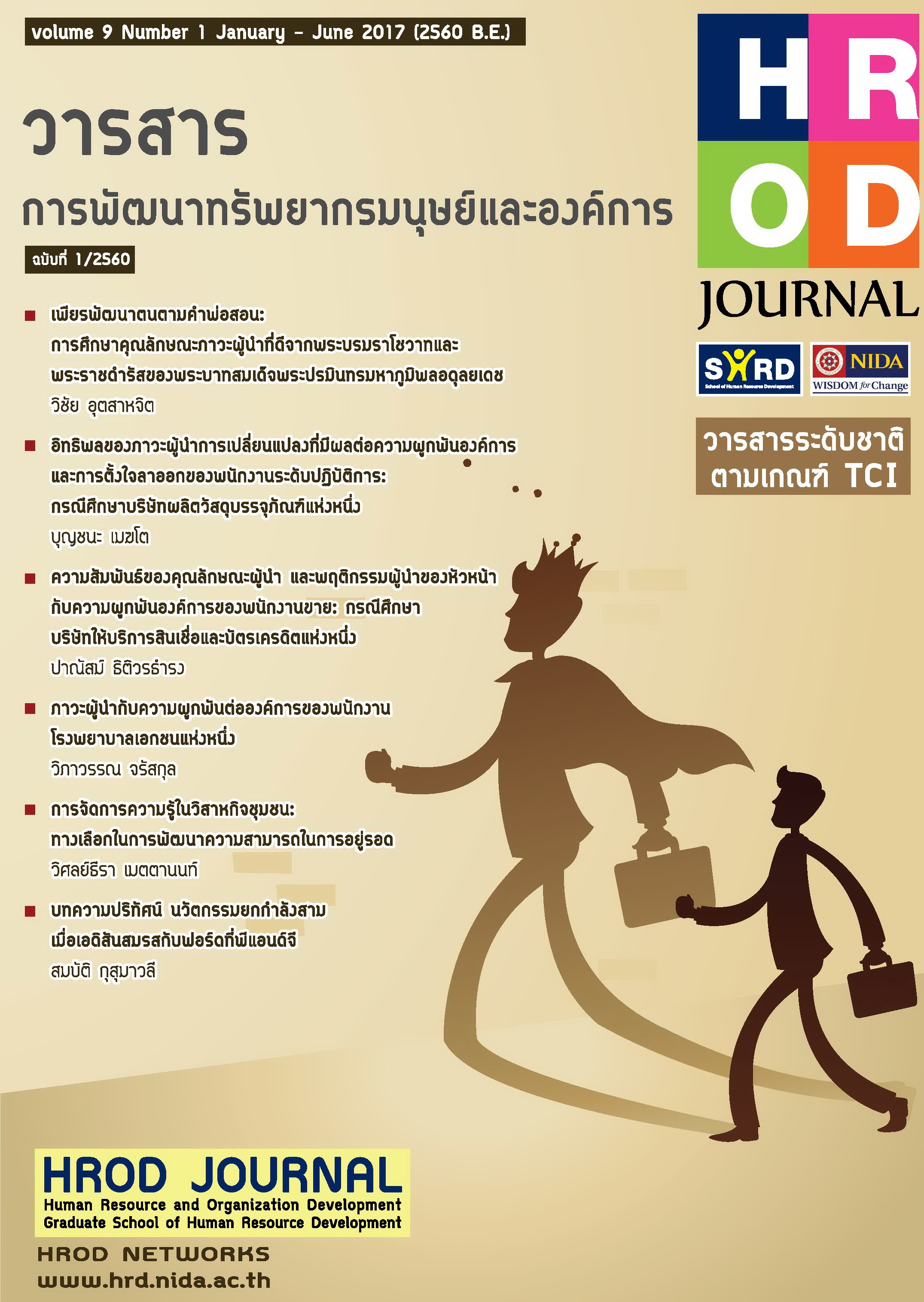Influences of Transformational Leadership on Organization Commitment and Turnover Intention in Operational Employ
Main Article Content
Abstract
The objectives of this study were to examine the relationships between transformational leadership, organization commitment, and turnover intention. The samples were 97 operational employees in the company belonging to the manufacturing industry. Data were collected by using 4-part questionnaire, covering personal data, employees’ perceptions of leaders’ transformational leadership (consisting of idealized influence, inspiration motivation, intellectual stimulation, and individualized consideration), organization commitment (consisting of Say, Stay, and Strive), and turnover intention. Data analysis utilized Pearson Correlation to test the hypotheses. It was found that (1) transformational leadership positively related to organization commitment, (2) transformational leadership negatively related to turnover intention, and (3) organization commitment negatively related to turnover intention. In addition to testing hypotheses, Multiple Regression Analysis was performed and revealed that transformational leadership together with an idealized influence could explain 16.4 percent of the variance in turnover intention. In addition, the element stay of the organizational commitment, together with transformational leadership (an idealized influence and individualized consideration) could explain 31.3 percent of the variance in turnover intention. These results indicated the important role of transformational leadership. Organizations should develop the transformational leadership characteristics of their administrators (consisting of team leaders, managers, and executives). These will help improve and promote organization commitment behavior in organization. Moreover these will help decrease turnover intention and behavior in organization.
Article Details
1) The content of article in HROD journal is the author’s wholly responsibility to research, analyze, summarize, compile, and reference data. The editorial department will not be responsible in anyway.
2) The submitted articles in HROD journal must be unpublished before and must not be currently under consideration for publication elsewhere. If it is detected for its repetition, the author must be responsible for infringement of copyright.
3) Authors will be asked to transfer copyright of the article to the Publisher. The article is prohibited to reproduce all or part of the text, unless allowed.


